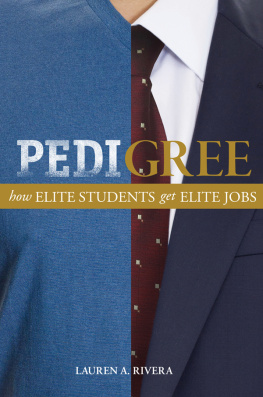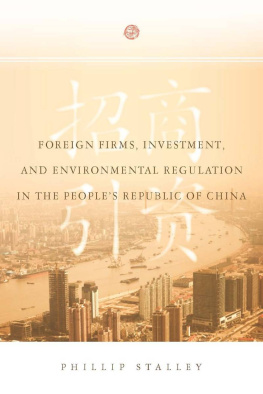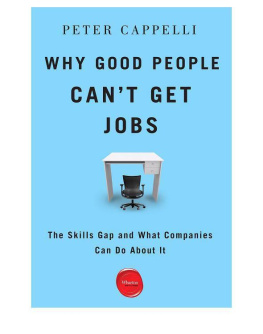
Pedigree
PEDIGREE
how ELITE STUDENTS get ELITE JOBS
LAUREN A. RIVERA
PRINCETON UNIVERSITY PRESS
PRINCETON AND OXFORD
Copyright 2015 by Lauren A. Rivera
Requests for permission to reproduce material from this work should be sent to Permissions, Princeton University Press
Published by Princeton University Press, 41 William Street, Princeton, New Jersey 08540
In the United Kingdom:
Princeton University Press, 6 Oxford Street, Woodstock, Oxfordshire OX20 1TW
press.princeton.edu
Jacket art: Left: DmitriMaruta/Shutterstock;
Right: aodaodaod/iStock and HansKim/iStock
All Rights Reserved
ISBN 978-0-691-15562-3
British Library Cataloging-in-Publication Data is available
This book has been composed in Garamond Premier Pro and ITC Officina Serif Std
Printed on acid-free paper.
Printed in the United States of America
1 3 5 7 9 10 8 6 4 2
To Mom, with gratitude
No man is an island.
John Donne
Contents
Acknowledgments
This book stems from my long-standing interest in elites. I collected the data while a PhD student at Harvard University. I am deeply grateful to a variety of individuals for supporting me throughout my windy academic journey at Harvard from studying posh nightclubs to political elites to Wall Street. I wish to thank my graduate school adviser and doctoral dissertation chair Michle Lamont for her outstanding mentorship, invaluable feedback, and continued intellectual support. I am particularly grateful to Michle for teaching me how to frame a sociological argument and how to navigate the discipline. I also extend my deepest appreciation to Frank Dobbin and Mary Brinton for initially piquing my interest in hiring, for teaching me the ropes of economic sociology, and for their rich insights about the project from conception to completion. I am also extremely grateful to Christopher Winship and the late J. Richard Hackman for their support and encouragement throughout graduate school. Life in William James Hall was made brighter by the close friendship and intellectual partnership of Simone Ispa-Landa, Chana Teeger, Allison Binns, and Therese Leung. As qualitative research is a time- and resource-intensive endeavor, this research would not have been possible without generous financial support from the Ford Foundation, the National Science Foundation, and the Graduate School of Arts and Sciences at Harvard.
Since leaving Cambridge, Massachusetts, my colleagues at Northwestern University and the Kellogg School of Management have been instrumental in shaping my thinking about social inequalities and organizational diversity. I am especially thankful for the ongoing mentorship of Jeanne Brett, Gary Fine, Paul Hirsch, Brayden King, Angela Lee, Willie Ocasio, and Brian Uzzi. Nicole Stephens has been a wonderful friend and an intellectual sister in studying social class.
I wish to thank Eric Schwartz and Princeton University Press for the opportunity to transform this book from an idea into a reality. I am deeply grateful to Katherine Mooney for her keen editorial eye and for helping me to refine my argument. I appreciate the care with which the two reviewers read an earlier draft of this manuscript and the insightfulness of their comments. Additionally, the feedback of Roberto Fernandez, Annette Lareau, Mitchell Stevens, and Viviana Zelizer along with that of Andrew Abbott, David Bills, David Brown, Tony Brown, Katherine Donato, Larry Issac, Holly McCammon, Kevin Stainback, and the anonymous reviewers at the American Journal of Sociology, the American Sociological Review, and Research in Social Stratification and Mobility on articles related to this book have greatly influenced the ideas presented here.
No woman is an island, and my family has been integral in supporting me before, during, and after this book. I wish to pay particular thanks to my mother, Eliana, for always believing in me and for teaching me resilience and persistence in the face of challenges. Unbeknownst to her, she equipped me with vital skills that have been an asset in qualitative research, including how to really listen, to look at American culture with a distanced eye, and to embrace the unknown and unexpected. My brother, Richie, has been an inspiration when it comes to writing. I am also immensely grateful to my husband, David, for his unrelenting enthusiasm and support for my work and for being a formidable partner in life and laughter.
A question that I frequently receive is how I became interested in social class and elites. In this respect, I am immensely grateful to the Brentwood School for being both a source of intellectual inspiration and a vehicle of upward mobility. Brentwood was my first exposure to upper-class culture, since I grew up in a single-parent, low-income, immigrant family. Without the formal and informal education that I received there and the schools former policy of giving the children of staff free tuition, I would never have been able to enter the elite worlds that I now study. At Brentwood, I am particularly indebted to the late Lynette Creasy, Jennifer Evans, Lynette Gelfand, Judith OHanlon, and Sarah Wallace. At Yale University, my professors equipped me with theories and methods that helped me make sense of upper-class culture. I thank Joshua Gamson for first introducing me to Pierre Bourdieu and theories of social closure; Joseph Soares for piquing my interest in classical theory; and Todd Little for instilling in me a love of empirical research and the desire to become an academic.
Last but certainly not least, I wish to thank my research participants for their openness and insights and for taking the time to share their experiences with me despite their grueling work schedules and various outside commitments. I am particularly appreciative of those who rallied (i.e., cajoled) the support of their colleagues and administrators. Furthermore, I wish to express my deepest gratitude to my ethnographic informants, especially Zach, who provided me with unparalleled access into the inner workings of professional service hiring. Although I cannot thank them by name, I am ever grateful to them for their trust, generosity, courage, and companionship. You know who you are, and you are indeed rock stars.
Pedigree
Entering the Elite
Most Americans believe that hard worknot blue bloodis the key to success. Textbooks, newspapers, and novels are filled with Horatio Alger stories in which an individual rises to the top through personal drive and perseverance. Whether these narratives focus on Warren Buffett or Homeless to Harvard, the underlying message is the same: economic and social positions are achieved, not inherited from ones parents. The people at the top are there because of their own intellect, unflagging effort, and strong character. Those at the bottom have their own weaknesses to blame.
Despite this widespread faith in a monetary payoff for hard work and belief in myths of a classless society, economic inequality is now greater in the United States than in many other Western industrialized nations, and American rates of social mobility are lower.
This raises an obvious but pressing question: In an era of merit-based admissions in education and equal opportunity regulations in employment, how is it that this process of elite reproduction occurs? Social scientists in a variety of disciplines have examined how historical and economic changes at home and abroad, social policies, and technological factors have contributed to the concentration of wealth and income at the top of the economic ladder. These studies inform us about crucial drivers of economic inequality, but they do not tell us enough about how and why economic privilege is passed on so consistently from one generation to the next.
Next page








